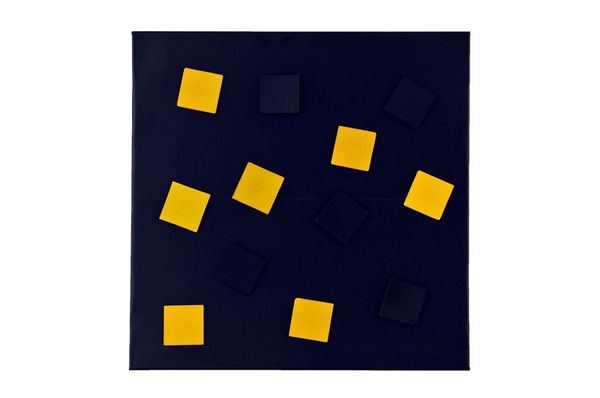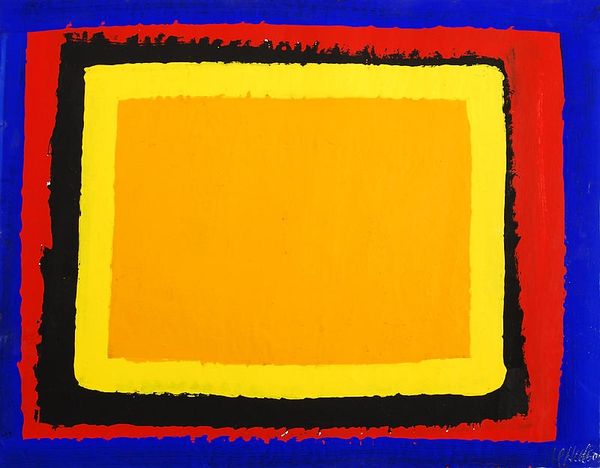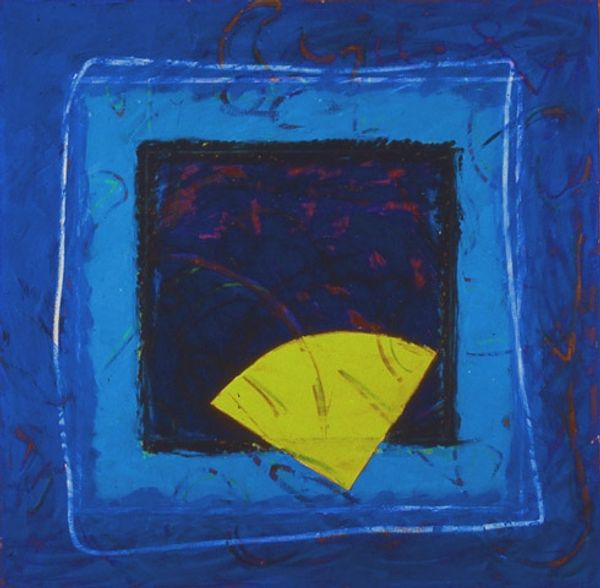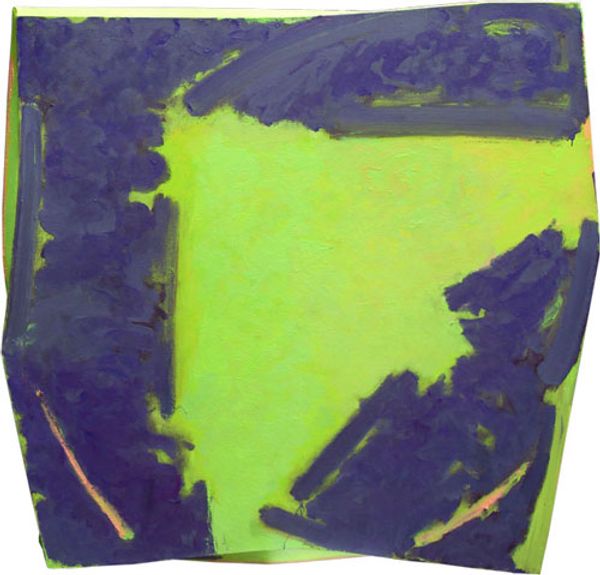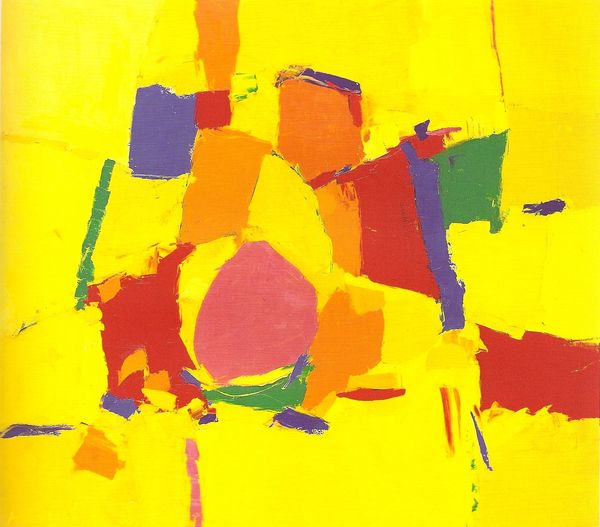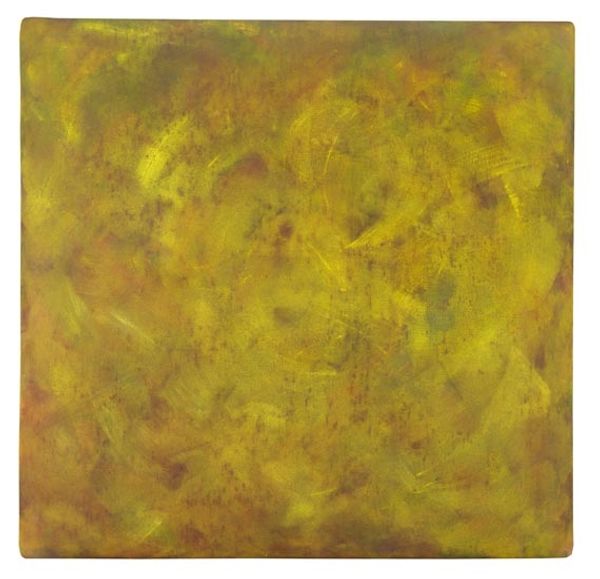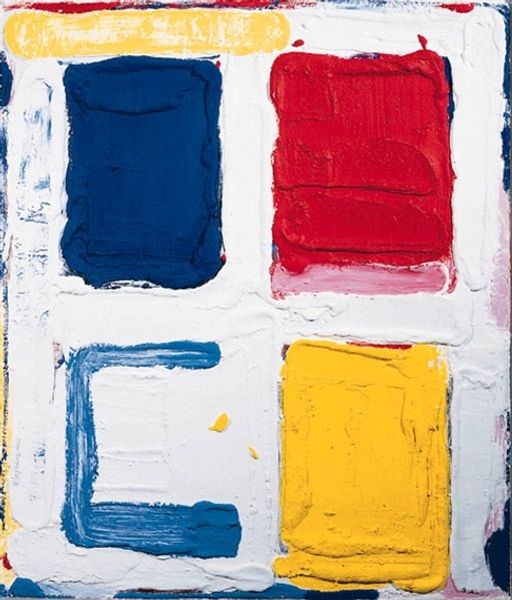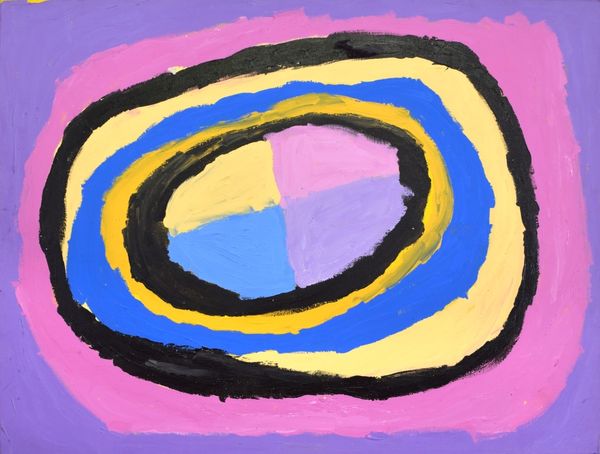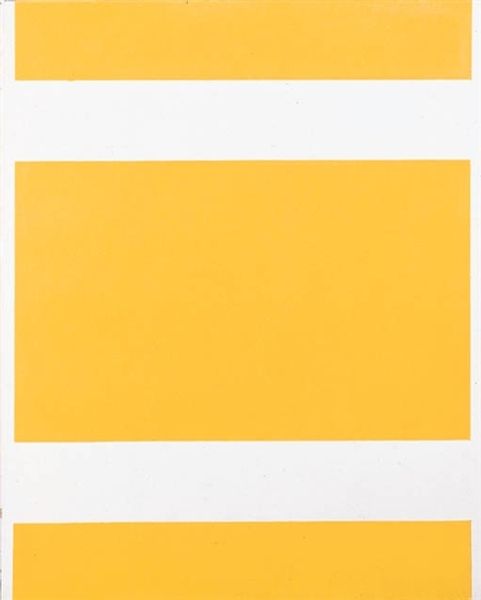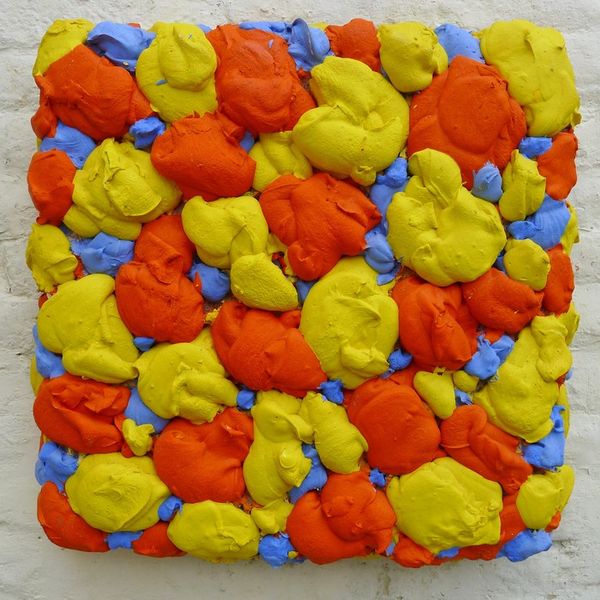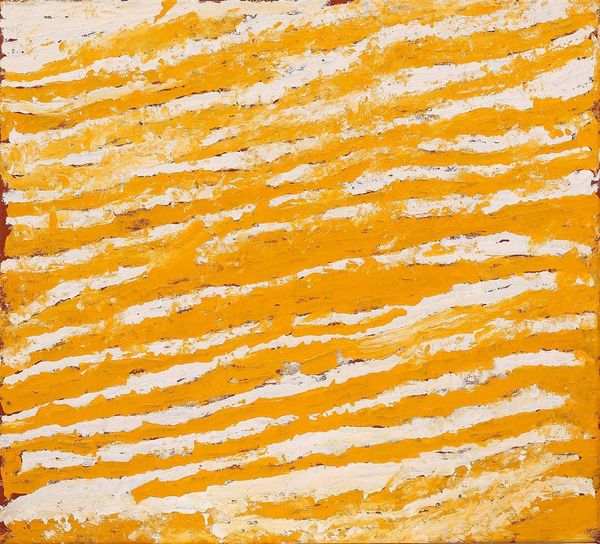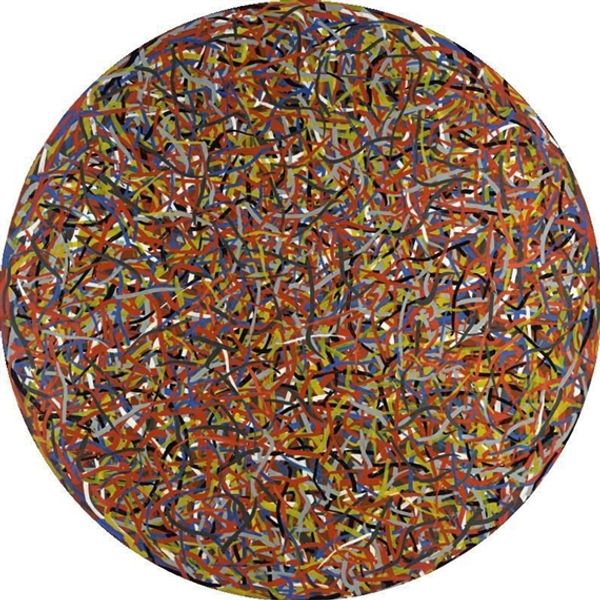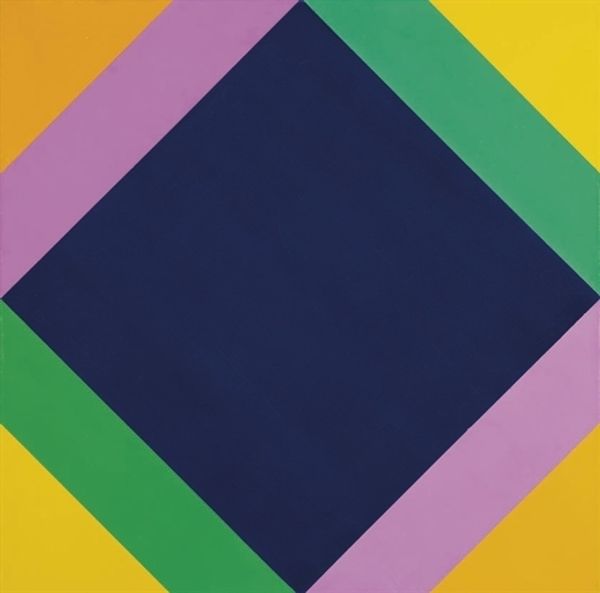
matter-painting, acrylic-paint, impasto
#
abstract-expressionism
#
matter-painting
#
non-objective-art
#
textured
#
acrylic-paint
#
painted
#
impasto
#
acrylic on canvas
#
geometric-abstraction
#
abstraction
#
organic texture
Copyright: Bram Bogart,Fair Use
Bram Bogart created this work, titled "Geelblauw," with thick impasto paint, a technique that is as crucial to the image as its colors. Bogart, who lived from 1921 to 2012, produced this work in a period of profound change for the institutions of art. After the Second World War, artists pushed the boundaries of what could be considered art, challenging traditional artistic structures and norms. Bogart’s heavy application of paint, almost like a sculptural relief, moves painting away from illusionism and towards pure objecthood. Consider the socio-political context of post-war Europe, where artists sought new modes of expression to break from the past. Bogart’s work certainly participates in a larger cultural shift, which questioned traditional values and celebrated experimentation. Understanding "Geelblauw" requires knowledge of the cultural forces that shaped its creation. Art historical resources, such as exhibition reviews and artists' statements, can give a better sense of the social and institutional landscape that Bogart was working in.
Comments
No comments
Be the first to comment and join the conversation on the ultimate creative platform.
